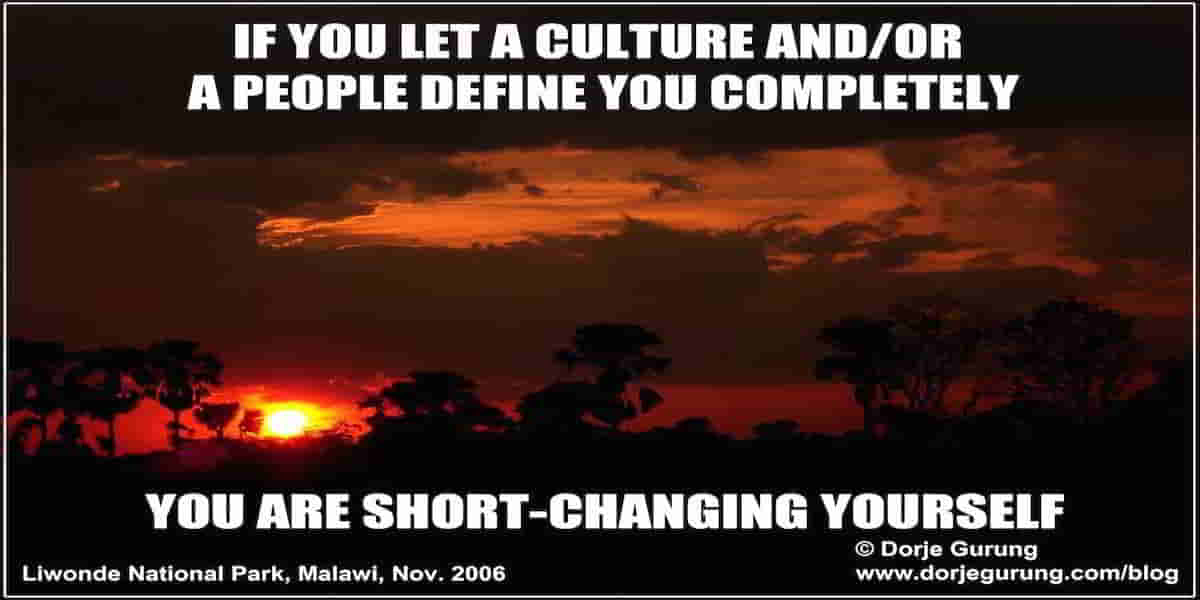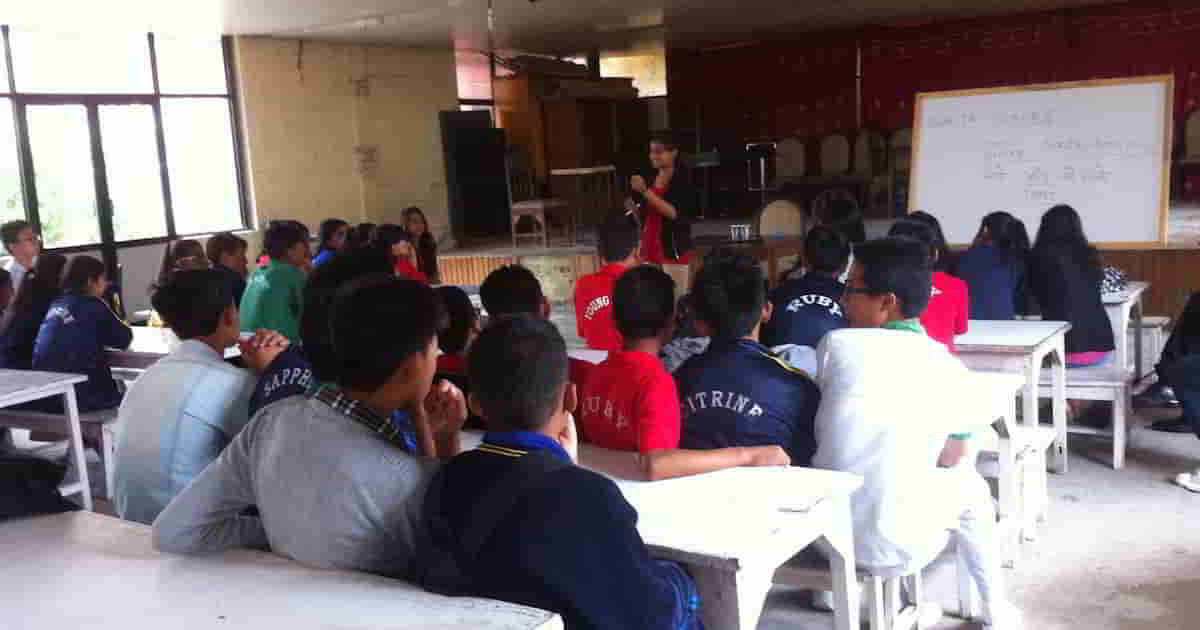
If you let a culture and/or a people define you completely, you are short-changing yourself!
My desire, as a fifth grader, to go to the US for further studies was fuelled by the need to show/prove that a Bhote can be as successful academically and professionally as any other Nepalese. But of course, at the time, I shared this with no one…not a friend, not a teacher, not a family member.
At the same time, I began learning more and more about the worlds beyond the borders of Nepal from movies shown once or twice a month at the school, from Bollywood movies I saw in theaters in Pokhara and Kathmandu, and from the novels I used to devour.
When videos entered Nepal around 1982, just when I started my secondary school education, the images I had of those worlds became a little more concrete but not much more understandable.
[bctt tweet=”If you let a #culture and a people define you completely, you are short-changing yourself!” username=”@Dorje_sDooing”]
As I progressed in my academic career, I was further inspired by our North American teachers and my fascination with the worlds outside of Nepal grew. Approaching the end of my secondary education, I applied for a UWC scholarship, wanting to see and learn about them.
What’s more, by that time, I had also developed a strong inclination to escape and break free of the shackles that Nepalese culture and society had become.
I felt uncomfortably restricted by conservative Nepalese traditions and culture. I felt stifled by Nepalese attitudes and societal norms. (What I could be, who I could be, what I could do etc. were all severely limited because of the circumstances of my birth.) Of course, I didn’t share that with anyone either!
I have always known that I must not have been alone in feeling that way…that there must have been many MANY others like me then who never reached anywhere near in life as I did.
And, more importantly, that there must be many MANY such children in the next generation of Nepalese.
That with a little help, a little inspiration, a little encouragement — just what I had received from graduates of St. Xavier’s as a fifth grader — some of them might make something considerably more of their lives than what they are destined for.
That I might be able to inspire them to dream BIG, dream near-impossible dreams, especially inspire those from marginalized and low socio-economic backgrounds.
And that is what I continue to try to do in Kathmandu.
To that end, having inspired Anshika to apply for the UWC scholarship two years ago — and, in a way, helped her “escape” — a little over a month and a half ago, I started my round of school visits.
My first visit was to Little Angels College. Then, it was Young Hearts Boarding High School, where Anshika had completed her primary (elementary) and secondary school education, before landing at Little Angels College on a scholarship. At both the venues, Anshika was also on hand to share her experiences.
In the audience, gathered in the hall, were a number of students from marginalized and disenfranchised groups — including ethnic Tibetans, like myself, and Madhesis, like Anshika.
I shared my life story with them. I told them how I strove to realize my dreams and did — getting to the United States via the United World College of the Adriatic.
I shared with them the incredible opportunities I have had since then…to travel and to do things that I had never imagined doing as a child growing up in Nepal.
I also talked about how in spite of the kind of life I had — living, working and traveling around world — I was also set on returning to Nepal to fulfill one of my original dreams: “Desko sewa garney” (to serve my country).
I told them how I returned to Nepal three years ago to fulfill that dream, and how now I work on the education of children like them.
I wrapped up the presentation by saying how they too have the capacity to aspire to — and accomplish — much more than that which our society says they are capable of and will. That, one of the ways to realize their potential is to break free of our society and our people.
Following my life story, I shared details of the UWC scholarships and how anyone and everyone can apply, and how it could also be their ticket to the world, just as it had been for me! That they don’t have to have “source-force” (be wealthy and connected) to get this scholarship.
As a matter of fact, that the FULL scholarships are actually reserved for students like themselves. We don’t offer them to the Ministers’ sons or the children of Secretaries (Sacheev) in response to a phone-call order from some high-ranking political leader or government official etc.
After I finished talking, I had Anshika share her story, recognising that someone closer to their age and someone who had graduated from their own school would be able to connect to them in other — likely better — ways.

When she said that applying to the UWC and returning home for summer break after a year at the UWC had changed her life, of course I could tell that she was not exaggerating! I could see just from watching and hearing her speak that she had changed and grown in ways in which she wouldn’t have had she remained in Nepal.
She was well on her way to creating her own self, instead of being bound to — and bound by — the dictates of Nepalese culture, society and people.
And it felt good knowing that I had had a hand in that! Going by their testimonials, I just may have inspired at least some of those in the audience too!
